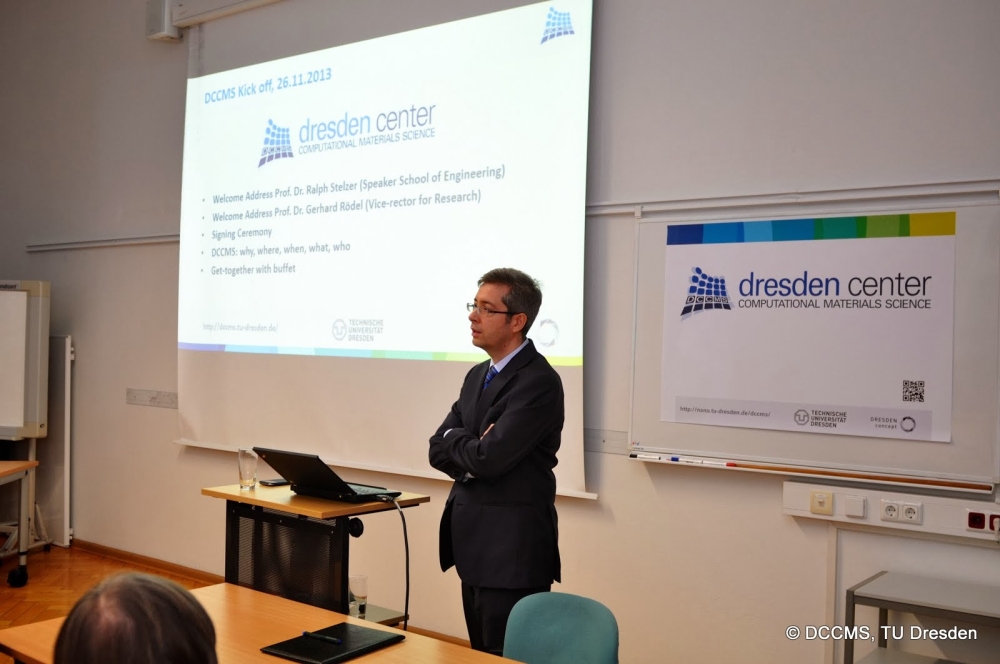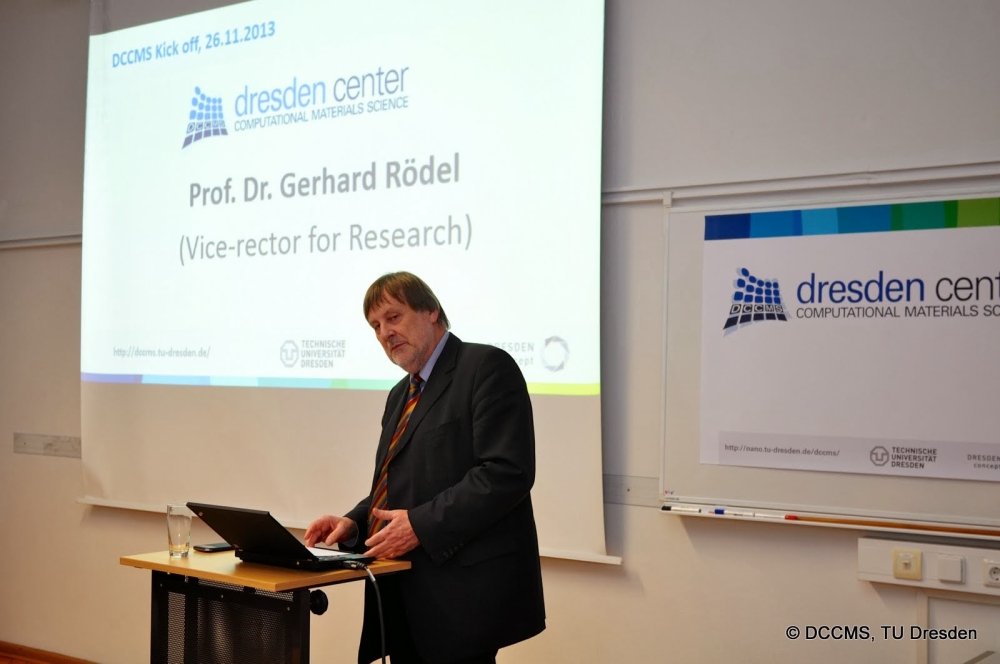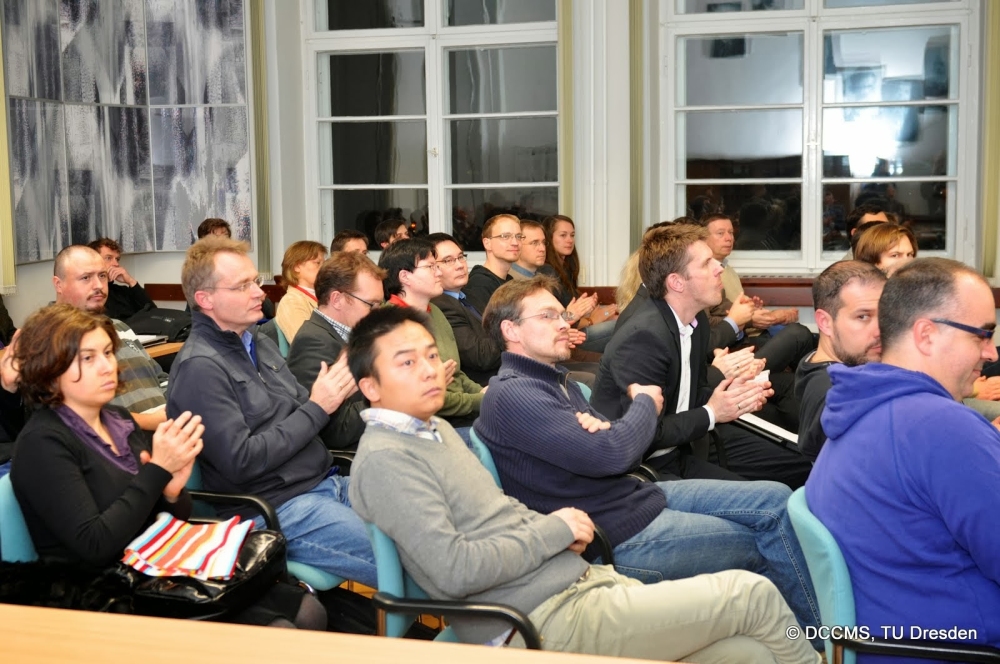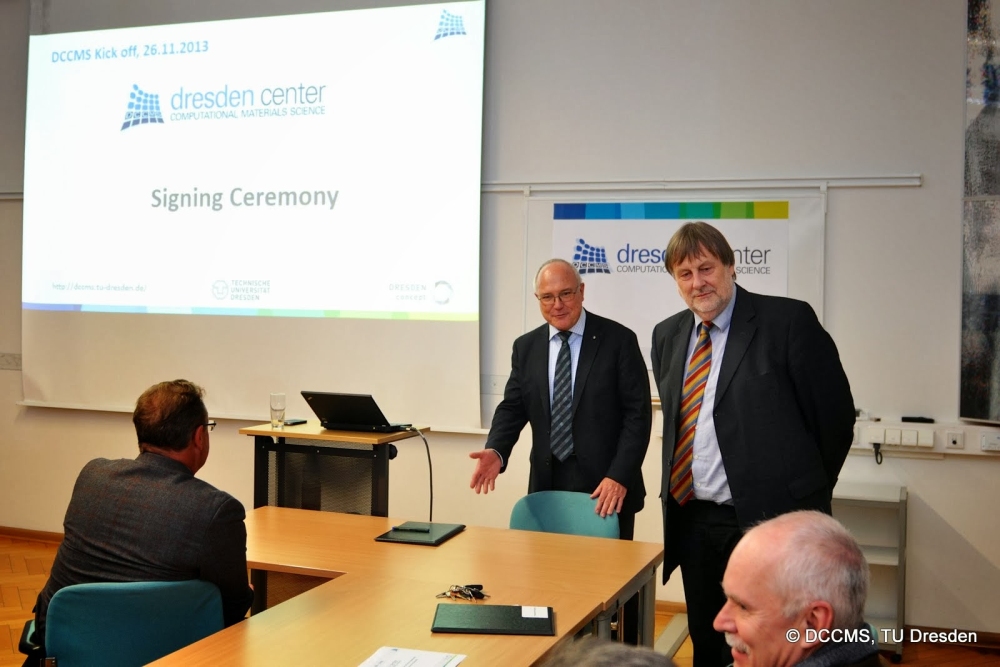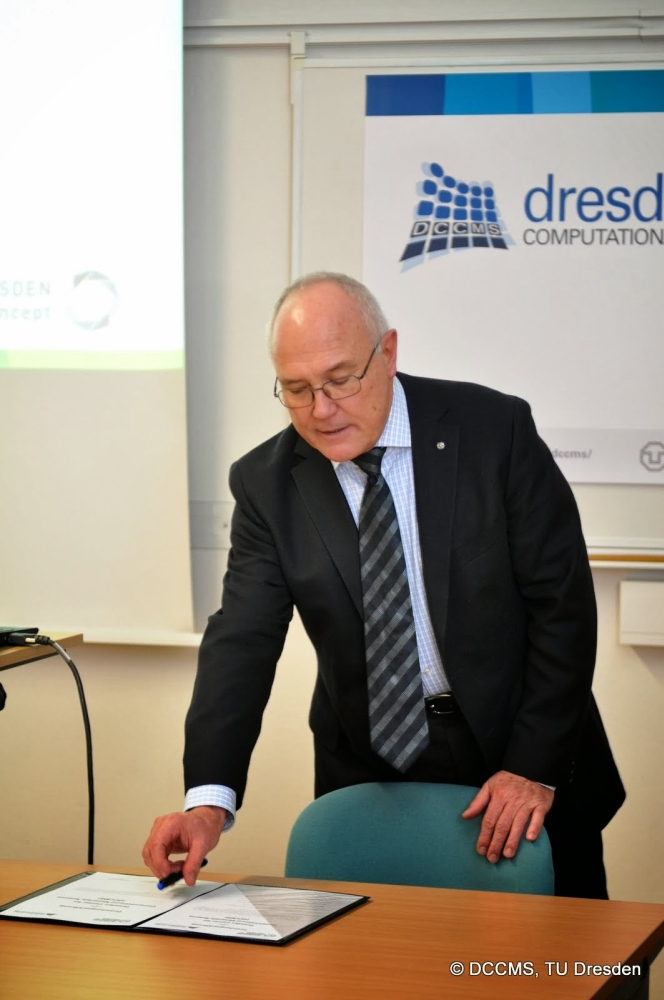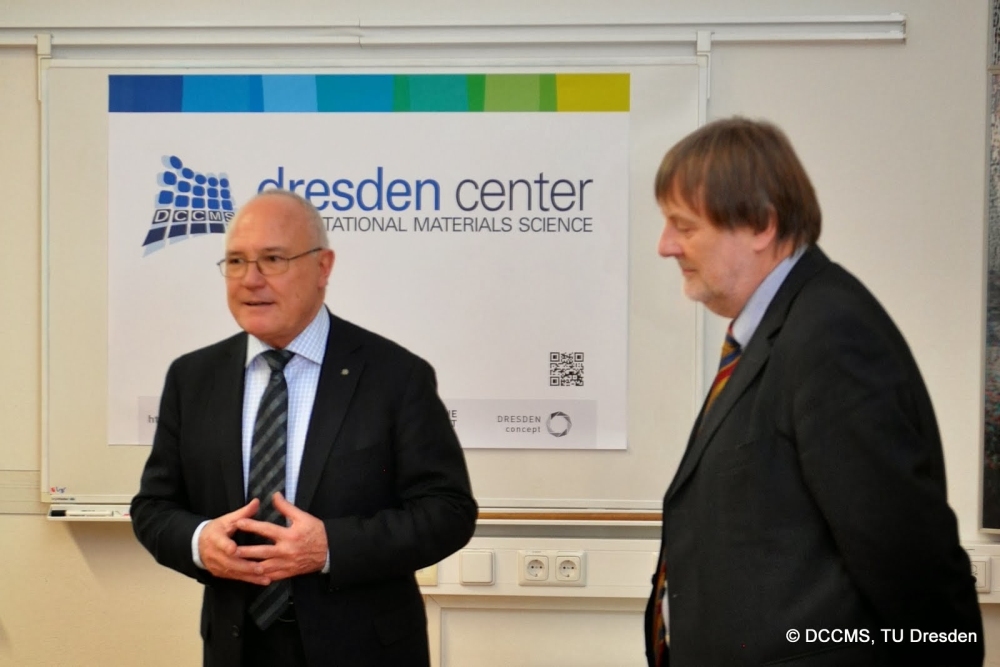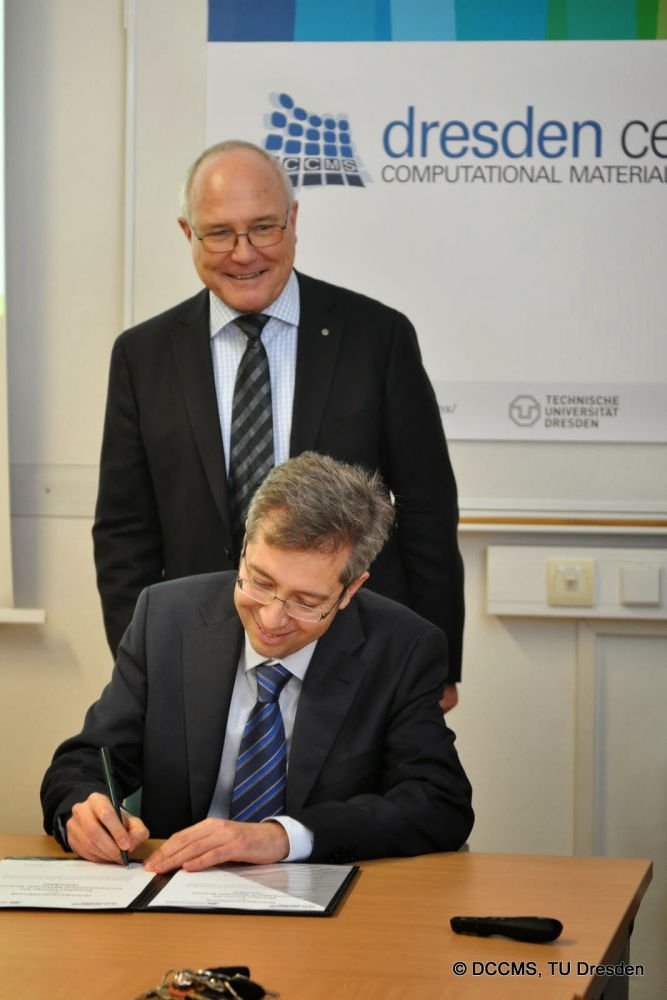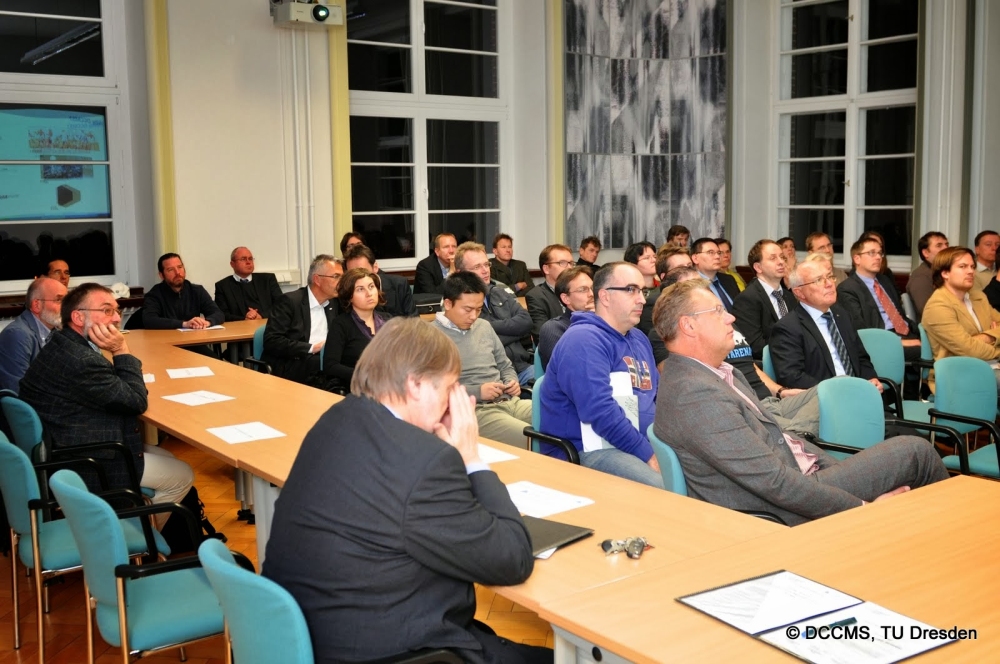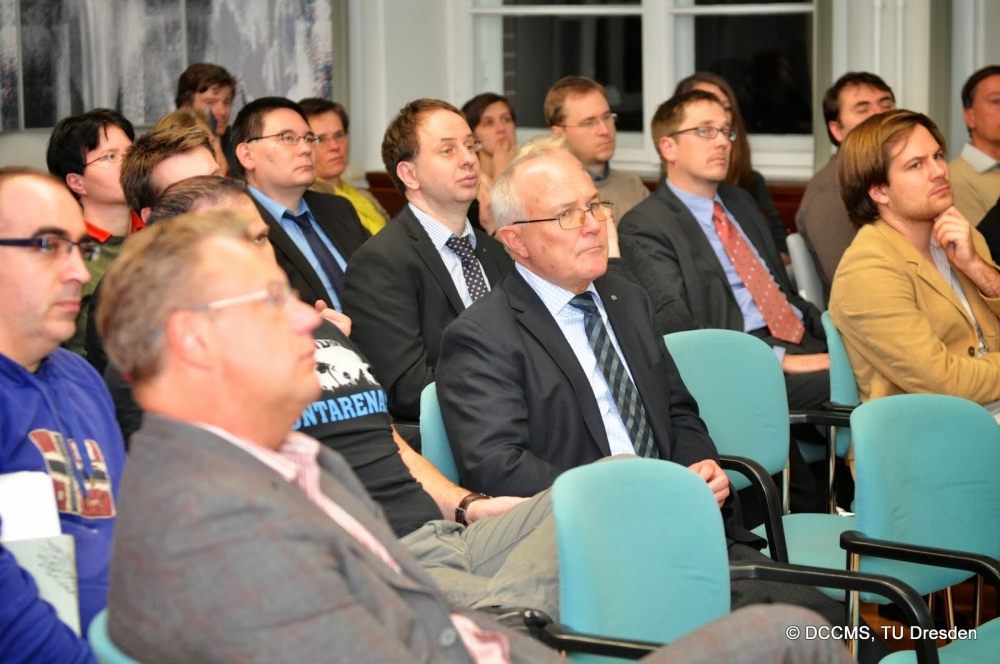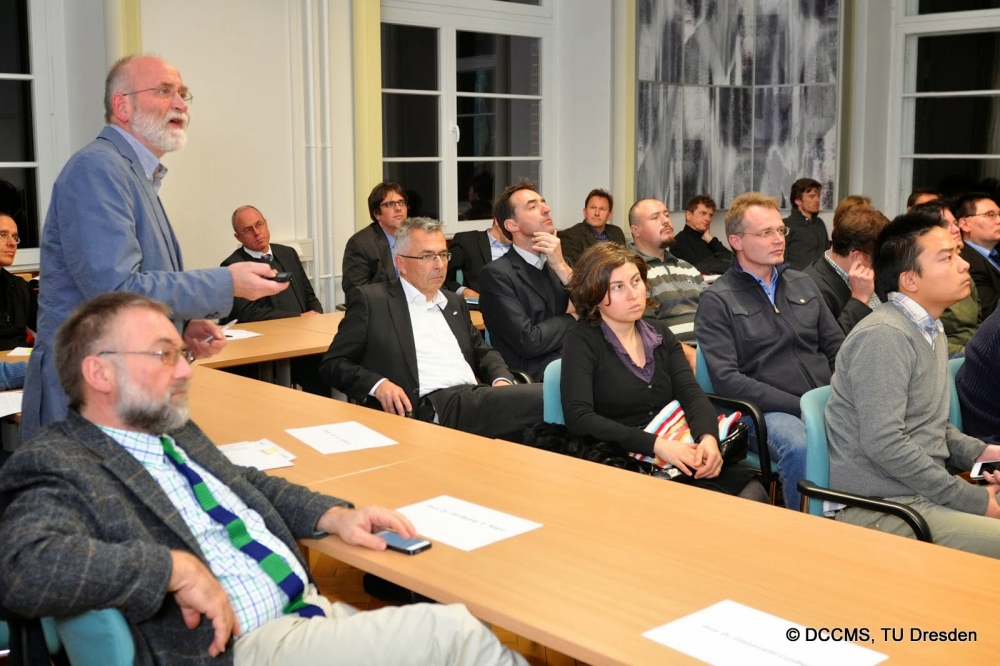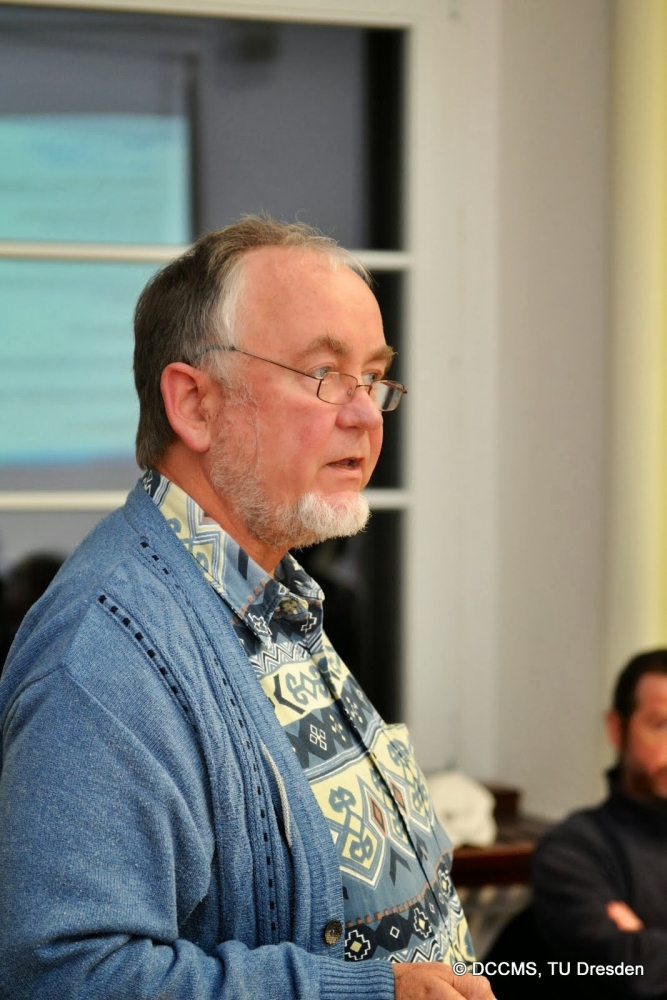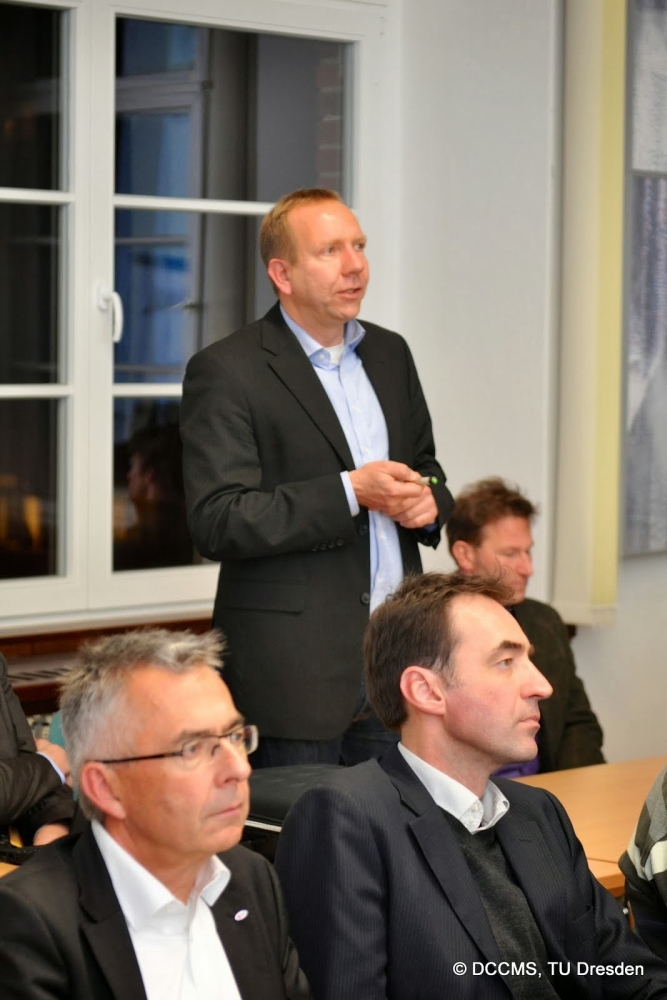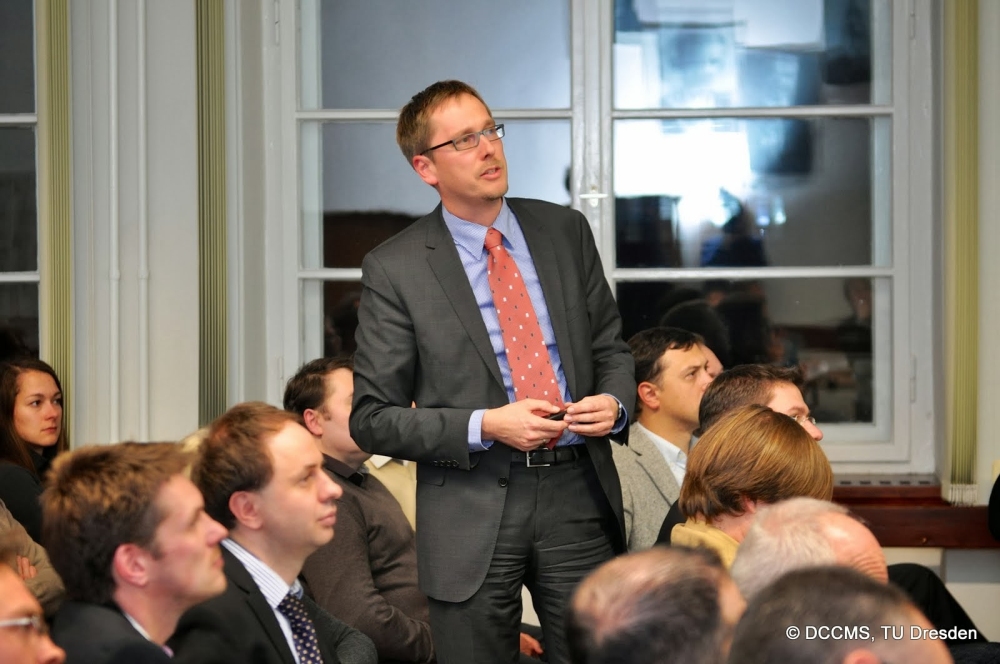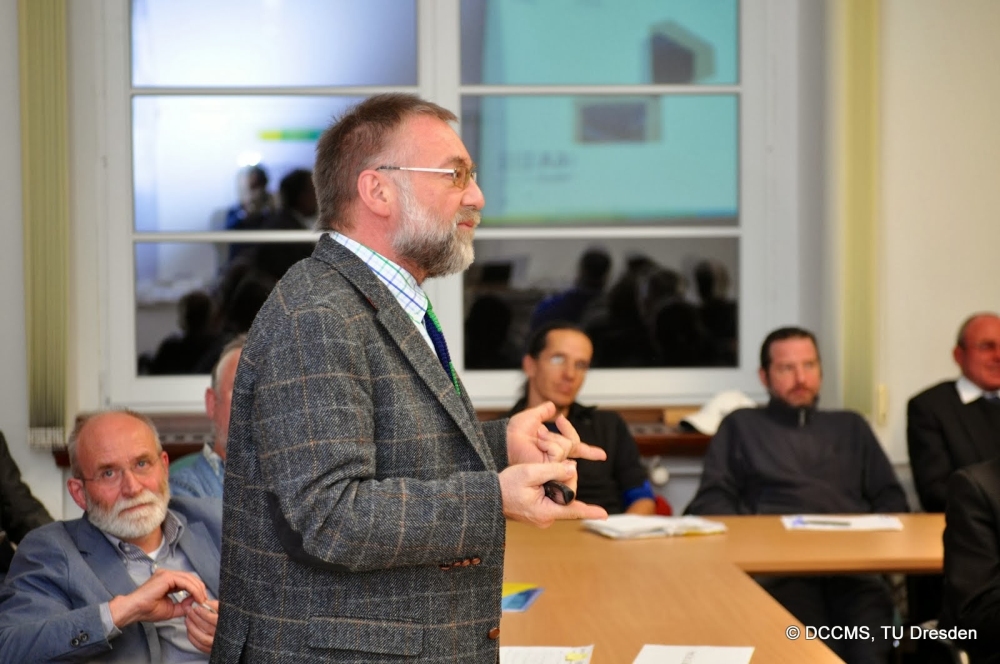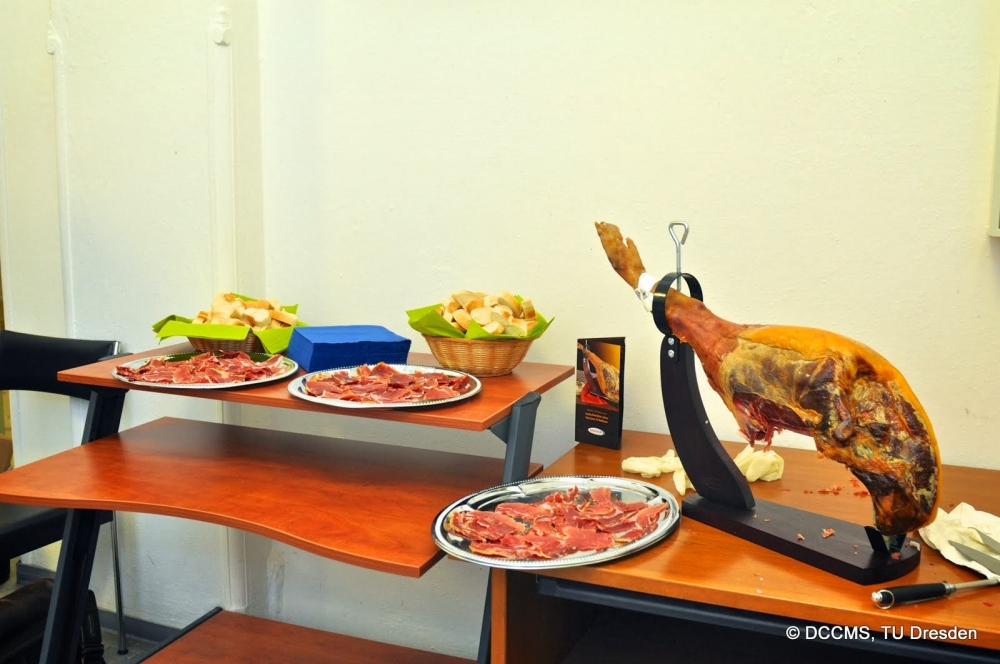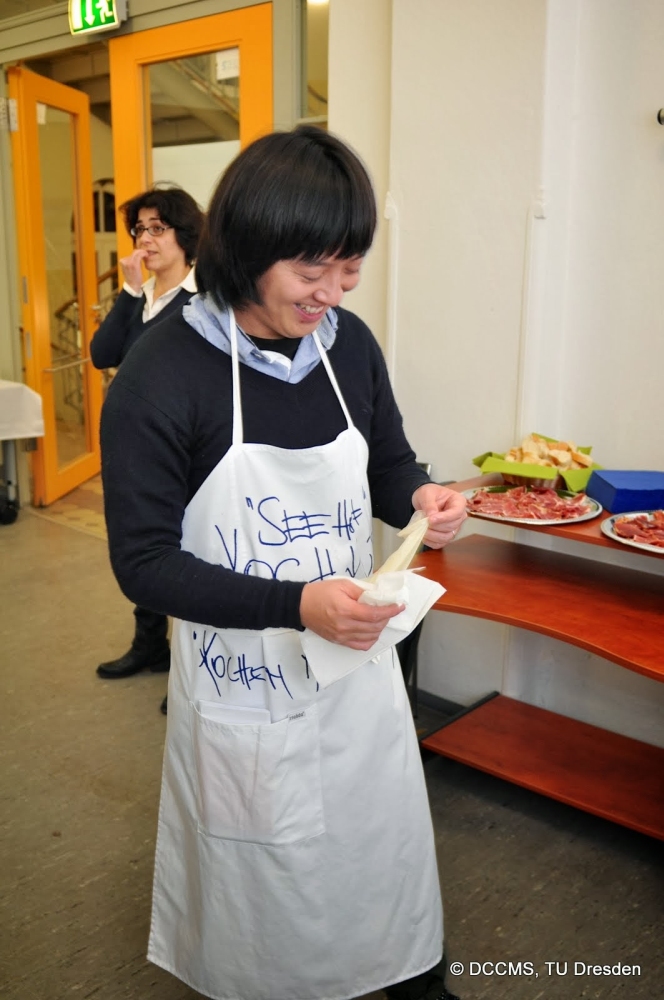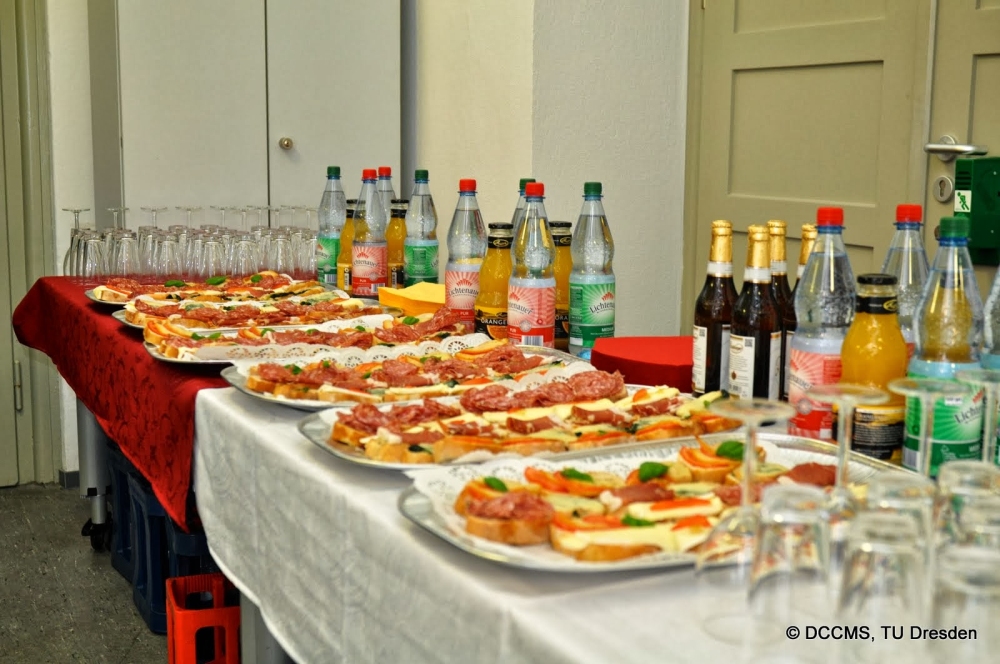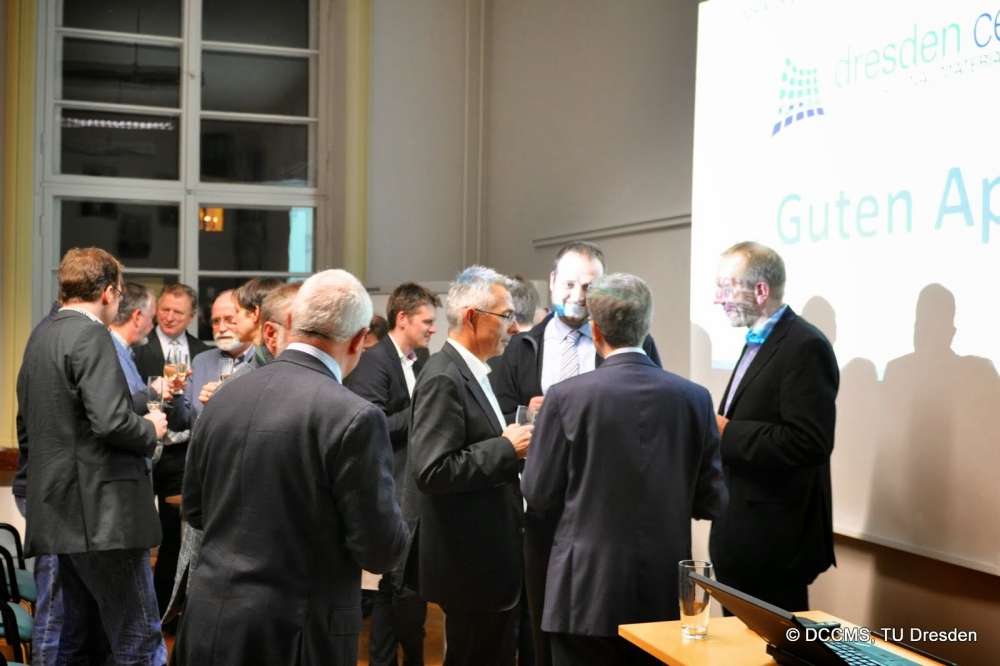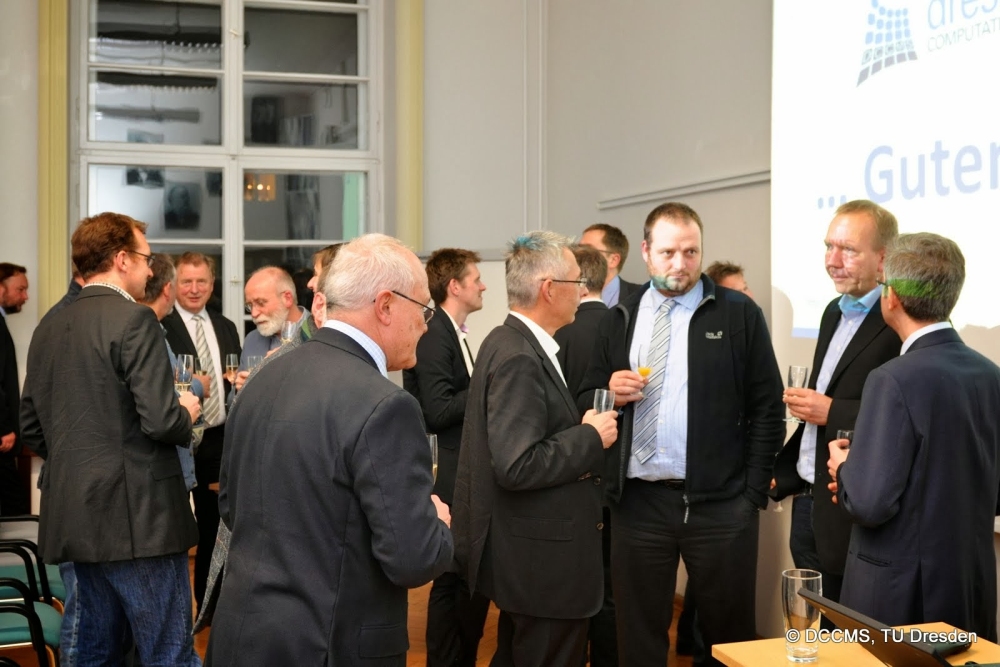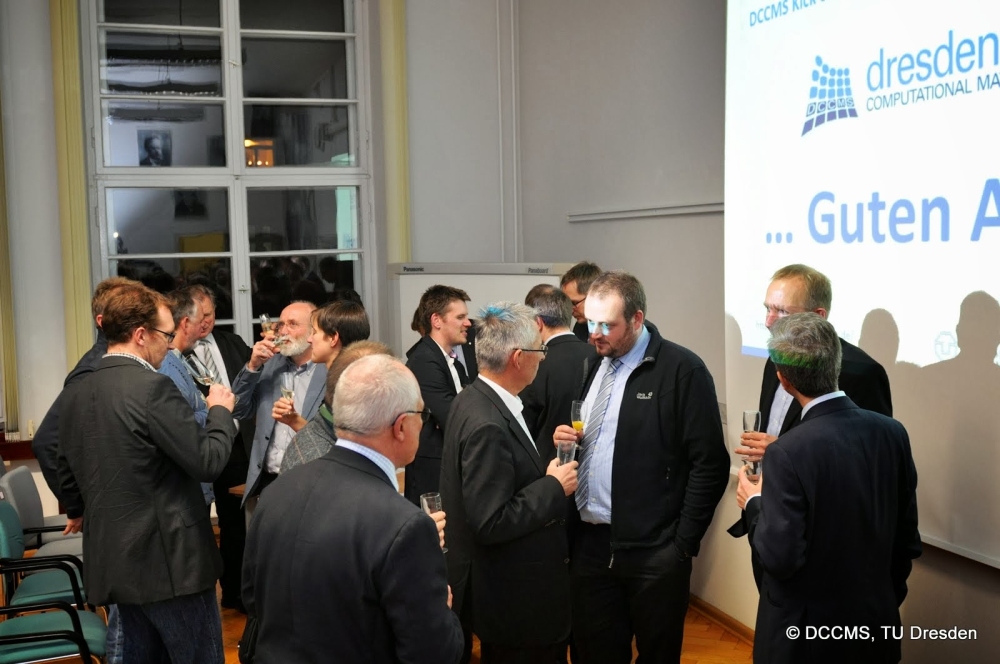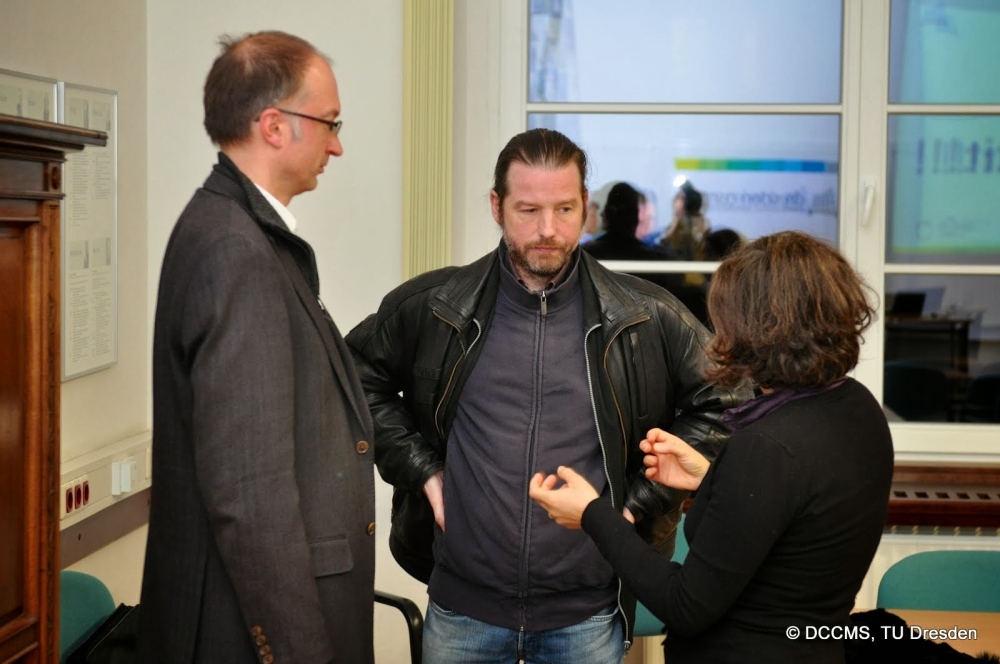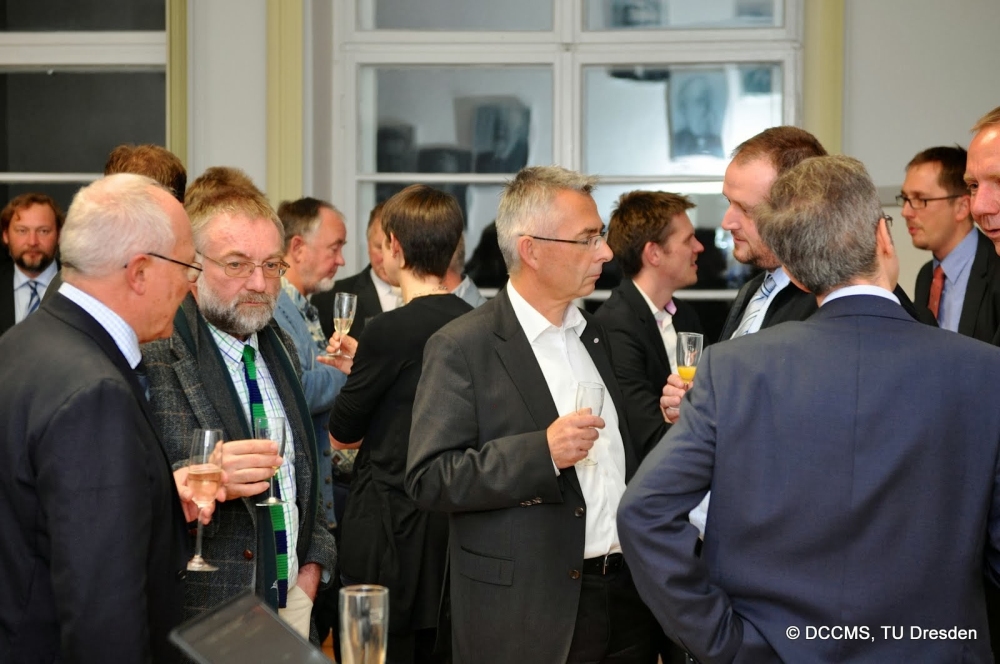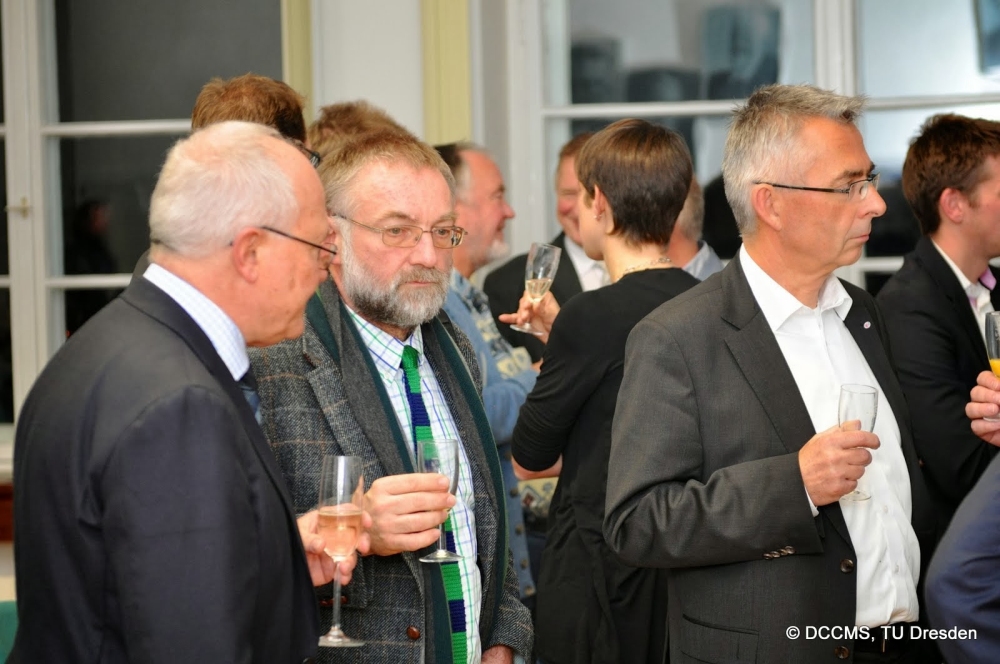The Kick-Off Meeting of our center took place at on November 26th, 2013 in Zeuner building, room 252. The involved parties presented goals and actions of the center and discuss next moves.
The 2013 Nobel Prize in Chemistry has been awarded to three scientists who contributed to the development of powerful computer models to simulate chemical processes. This indicates that research on new materials does no longer happen only in laboratories. In fact, computational design of innovative materials is increasingly important. How can materials be used to increase battery lifetime and energy density, to construct lighter but safer cars, or to diagnose diseases faster, cheaper and more reliably? Those fundamental questions can be addressed in computer simulations and only the most promising candidates will be implemented.
Dresden, with the University of Technology being a central part of its scientific community, has become a leading player in materials science – in Europe and globally. Computer based modeling and design is one of its backbones. To preserve this top position, the university management supports and finances the newly founded “Dresden Center for Computational Materials Science” (DCMS) for four years using resources of the Federal Excellence Initiative.
“By establishing an agile and flexible center of excellence for materials simulations at the TU Dresden, the know-how in computational material design can be significantly improved”, says Prof. Dr. Gianaurelio Cuniberti from the faculty of mechanical engineering, one of the founders and the designated director of the center. “About 70% of all innovations are based on the progress in materials science. Focusing the activity of four Faculties and two Schools results in an internationally competing network for science and teaching”, Cuniberti continues. The center will help in acquiring new projects multiplying external funds from public, private and industrial sponsors. By establishing attractive framework conditions, the center will become an attractive location for excellent and ambitioned scientific talents from all over the world. To transfer knowledge from research to students, a new international Master Course “Computational Materials Science” is planned, for early facilitation of young researchers.
.




